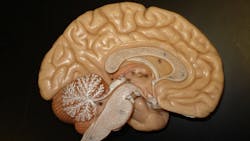When I got my first job as an engineer at a utility I didn’t give a thought to benefits or job satisfaction – and certainly not retirement. This was in 1970, the United States was in a recession and jobs were scarce. Before going into graduate school I had all sorts of job offers but not now. And then a position opened up at Pacific Gas and Electric Co. (PG&E) in the San Francisco Bay Area. I figured any old port in a storm so I applied and was hired. My plan was to work for the utility for a year or so and then move on to more exciting things when the economy picked up.
I remember a fellow engineer telling me I could just hop in the saddle and ride it to retirement. I knew that wasn’t going to be me.
But then we had children, a new car. We bought a house. And I was finding the work fascinating – particularly after PG&E’s R&D department was formed and I was part of it.
And of course, there was the job security – I never saw anyone fired or laid off.
Eventually the R&D department was disbanded, my job became ho-hum. I had offers for more exciting work elsewhere and I took one. I had 27 great years at the company. But there was no succession planning at my level so I took a lot of experience and knowledge with me when I walked out the door.
But the little piece of company value that was lost when I left is nothing compared to what’s going to slam the industry in the next few years.
A recent article in Forbes points out the looming industry crises in the article: Embattled Utilities Face 'Talent Storm'
“Almost half of the engineers employed by power and utility companies will become retirement eligible this year, according to analysts from Deloitte Consulting, and venerable old electric companies are finding it increasingly difficult to attract new talent.”
The article quotes Garth Andrus, a partner at Deloitte Consulting: “We’ve got the skilled talent shortage, we’ve got mass retirements, we’ve got rapidly developing new technologies and skill needs, we’ve got a lot of people competing for existing employees…”
The article goes on: “Utilities that grew up burning fossil fuels at power plants and sending electrons one-way across copper wires now must cope with an exodus of aging employees who worked under that paradigm, a perplexing influx of data from the smart grid, competition for business from renewable energy and competition for talent from sectors, like tech companies and the automotive industry, that were never seen as competitors before.”
Of course, this news isn’t new. Last year we even conducted a reader poll to see how many folks were held to their job mostly by the benefits and were waiting to leave when the Affordable HealthCare Act went into effect. You can still take the poll and see the ongoing results at http://tdworld.com/polls/featured-poll-will-obamacare-let-you-leave
So here’s the take away:
The utility industry is losing legacy brain power at a rapid rate. On top of that, companies need non-traditional utility talent to support new IT and communication needs brought about by smart grid investments and the pressure of rapidly expanding distributed energy resources. But utilities are not yet in the position to compete with other “more exciting” industries to attract the best and brightest.
Can the utility industry make an internal culture shift to help keep existing resources and attract new talent? And can it do it fast enough to avoid what the recent Forbes article refers to as falling off the cliff?
Does your company offer enough work satisfaction, perks and other benefits to keep you on the job when the green pastures of retirement beckon? We’d like to know. Take our reader poll - What will it Take to Keep You On Your Job?
About the Author
Paul Mauldin Blog
Managing Editor, Grid Optimization Center of Excellence
Paul earned his B.S. and an M.S. in electrical engineering from the University of California-Berkeley and is a registered professional engineer. He has worked in the energy industry for more than 25 years, developing and implementing advanced energy technologies. As research director for Pacific Gas and Electric Co. he pioneered methodologies used in the design, maintenance and control of energy delivery systems.
As Manager, PG&E New Business Opportunities (Unregulated Enterprise), Paul led a worldwide evaluation of gas and electric technologies and markets and provided due diligence for equity investments. As a consultant he provided guidance to utilities and the vendor community, nationally and internationally.
Paul has led a number of initiatives at Transmission and Distribution World, including special supplements, webinars, podcasts, and website development.
